Lahooti Melo 2020: The difficult yet necessary marriage of art and activism
Festival organised 'Eco not ego' based festival with the right intent albeit a few hurdles
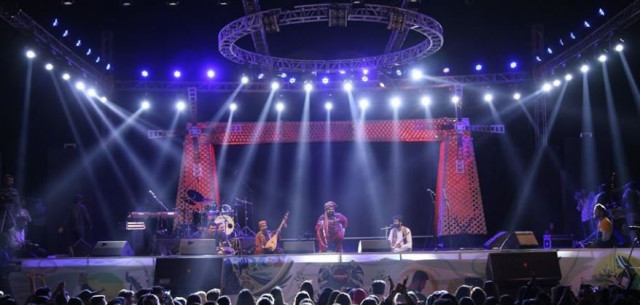
Lahooti Melo 2020: The difficult yet necessary marriage of art and activism
If anything, art or rather entertainment, is an effective tool to create awareness around a social cause. Even the healthiest of marriages are built on compromise.
As such if the bigger objective is achieved, it is unfair to label something morally hollow based on slight inconsistencies between the two aspects. When audience entertainment is at stake there is always a glass ceiling to altruism.
Keeping in line with its tradition of bringing to light social issues, the 2020 edition of Lahooti Melo centered around the theme of climate change, under the tagline 'Eco not Ego'. It took place at Mehran University of Engineering and Technology Jamshoro. According to Saif Samejo, the founder of the festival, like most issues, environment is also facing a crisis because people are unable to see past their egos.
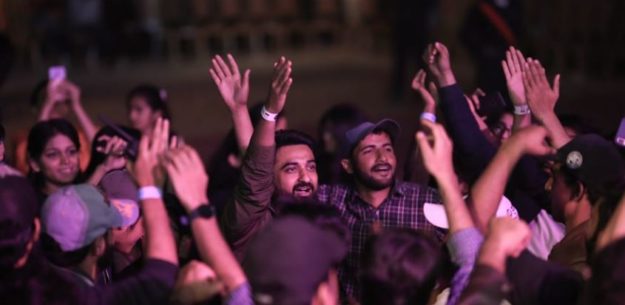 Source: Lahooti Melo
Source: Lahooti Melo"When we talk about this theme,'eco not ego' its primarily about the importance of cooperation and coordination among the people. Society's destruction caused by the worship of egos is not a new phenomenon, its been going on for as we can recall", Samejo told The Express Tribune.
Artist and activist Arieb Azhar who was one of the members of the organising committee believed that climate crises has the potential to unite people under a common cause.
"Environment is the kind of theme that unites all segments of society. Because everyone is affected by it and in order to do something about it we have to tackle very basic social issues also, such as disparity of wealth and corporate greed," Azhar said.
The language of activism
Crowd engagement in discussions was definitely a focal point this year with Sindhi being the most commonly spoken language not only among the audiences but also by the panelists. This reflects a shift in focus from catering to hoards of urban culture enthusiasts from Karachi to the local population of Jamshoro, Hyderabad and connected areas.
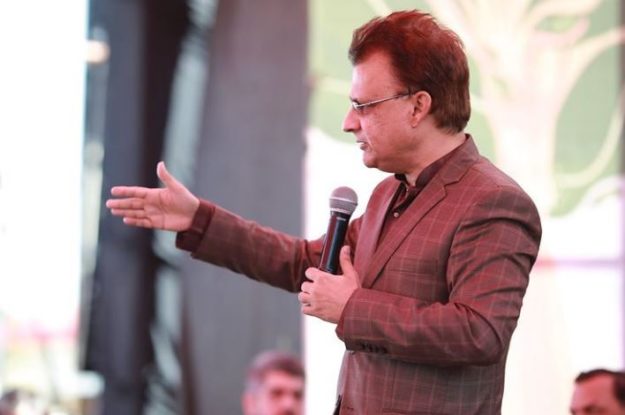
A prominent example of this was the panel discussion 'Whispers of Sindhu: The Struggles of River Indus'. Senator Sassui Palijo and Qaumi Awami Tehreek president Ayaz Latif Palijo, comprised half of the panel and chose to make their arguments in Sindhi much to the audience's delight. Given that the people of Sindh are the primary stakeholders when it comes to issues such as the deterioration of the Indus Water System, it made more sense to conduct the majority of it in Sindhi.
"Technically speaking the entire panel including the moderator were, in essence, championing the same cause. Yet you saw differences is opinion and observations from all. That was the entire point, to bring everyone together and create a civil discourse", said Samejo.
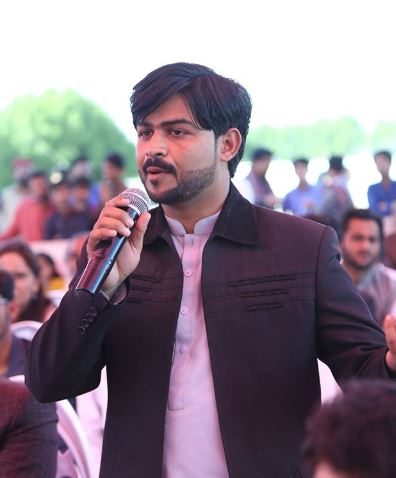
Another instance was when Sindh's own culture minister Sardar Ali Shah during the start of the panel 'Melodies of Monsoon' chose to speak in Sindhi on the audience's vote. Panelist Riffat Abbas and moderator Ishaq Samejo followed suit.
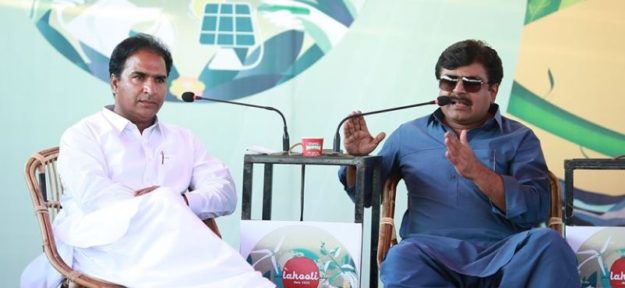
According to co-founder Sana Khoja, promotion of discourse in local languages was a conscious decision. "We told our speakers to prefer Sindhi or Urdu as last year we got feedback from the audience to have sessions in either of these languages. The festival is for common people, that's why gave priority to Sindhi and Urdu", Khoja said.
There were some occasional ups and downs in the technical aspects of the management of sessions. Timings of certain sessions were inconsistent while some were interrupted by power outages. However, as far as the substance was concerned, majority if not all were enough to garner the public's interest, irrespective of language.
Walk the talk
Given the theme, waste management was a crucial aspect of the festival, something a lot of festivals struggle with. While there were a limited number of trash bins, several garbage collectors were constantly at work. As such trash was being picked up as soon as it was being dropped in the food area.
From the logistical side of things, the festival tried on its end to reduce carbon footprint by commissioning buses with subsidised fares to bring people over from Karachi. Reduction of paper usage in promoting the event was also taken into account. "Mainly E-cards were distributed and few cards that we printed were on handmade recyclable seed paper", Khoja said.
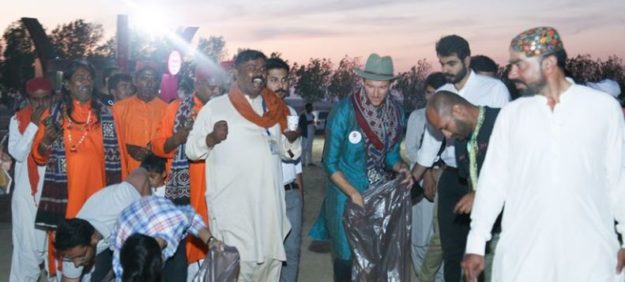
However if the situation were to be nitpicked, the sale of plastic bottles by a variety of food vendors was a let down, an issue the organisers tried their best to address but ended up giving into.
"Although we had told the vendors to not sell plastic bottles I don't know what kind of public demand they were catering to that they ended up doing so. In hindsight, I am fine with the vendors selling them. There is also a certain responsibility on the public's end as to not buy them", Samejo said.
He also said that those in the panel using bottles were doing it out of their own choice. "I wanted anyone who received a plastic bottle onstage to refuse it right there. We made sure that no plastic bottles were available backstage", Samejo added.
A learning experience
Not shying away from admitting the mistakes of the past, Samejo noted that self-correction has been an integral part of Lahooti. " It's our responsibility that we bring issues to light. Last year when certain audience members faced some issues we took their feedback seriously and resolved them this year. At the same time the people that are coming to the festival also have a slight responsibility on their shoulders" he said.
According to Khoja the whole ordeal from planning and execution was a learning experience for the team."We didn’t aim for a revolutionary act but tried to get ourselves into action to deliver the message. Saif himself was seen collecting trash during the concert last day and people joined him and the entire place was spik and span in a few minutes."Khoja concluded.
Have something to add to the story? Share it in the comments below



















COMMENTS
Comments are moderated and generally will be posted if they are on-topic and not abusive.
For more information, please see our Comments FAQ